Free Cavity Wall Insulation in Newport and all NP postcodes
The Great British Insulation Scheme
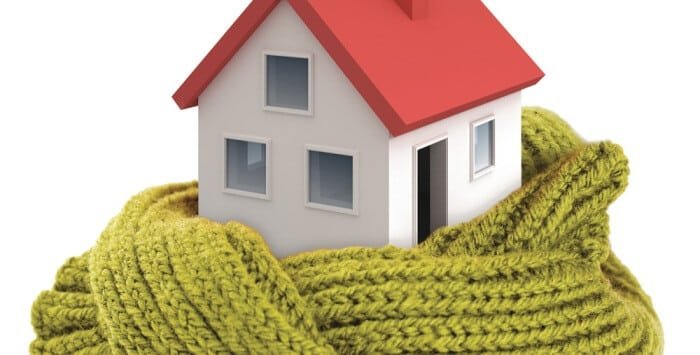
The Great British Insulation Scheme is available in Newport and all NP postcodes.
So, what does the Great British Insulation Scheme in Newport have to offer?
The Great British Insulation Scheme is a single insulation measure grant. However, in June 2025, free loft insulation became a secondary measure. This means that you could have both Cavity Wall and Loft insulation together, and for free.
The following measures are available, but at the moment, you can only have 1 measure installed under this grant scheme. There are some exceptions, such as Heating Controls, which can be added as a second measure, and free loft insulation from June 2025.
- Cavity Wall Insulation – This will always be free
- Loft Insulation – From June 2025, free loft insulation will be allowed with free cavity wall insulation.
- External Wall Insulation – Not offered under the Great British Insulation Scheme, but potentially under ECO4
- Internal Wall Insulation – Not offered under the Great British Insulation Scheme, but potentially under ECO4
- Pitched Roof Insulation – Not offered under the Great British Insulation Scheme, but potentially under ECO4
- Flat Roof Insulation – Not offered under the Great British Insulation Scheme, but potentially under ECO4
- Under Floor Insulation – Not offered under the Great British Insulation Scheme, but potentially under ECO4
- Solid Floor Insulation – Not offered under the Great British Insulation Scheme, but potentially under ECO4
- Park Home Insulation – Not offered under the Great British Insulation Scheme, but potentially under ECO4
- Room-in-Roof Insulation – Not offered under the Great British Insulation Scheme, but potentially under ECO4
- Heating Controls (under certain circumstances)
How do I qualify for a Great British Insulation Scheme grant in Newport?
There are 2 routes to qualifying for a Great British Insulation grant.
- The General Group.
- The “Low Income” Group.
The General Group qualification for the Great British Insulation Scheme grant in Newport.
This route to qualification is only available to homeowners.
- Your Council Tax Banding must be an A, B, C, D or E (or in England A to D). You can find your Council Tax Banding on Gov.Uk, and
- Your EPC (Energy Performance Certificate) rating must be a D, E, F or G. You can find your EPC on the EPC Register.
2 yeses, and you qualify.
The “Low Income” Group qualification for a Great British Insulation Scheme grant in Newport.
This route to qualification is available to both homeowners and privately rented tenants.
- You must receive a qualifying benefit (see below)
- Your EPC (Energy Performance Certificate) rating is a D, E, F or G. You can find your EPC on the EPC Register.
Here is the list of Qualifying Benefits.
- Pension Credit
- Income-Based Job Seekers’ Allowance
- Universal Credit – No income threshold
- Income-Related Employment and Support Allowance
- Tax Credits (including Working and Child Tax Credits) – No income threshold
- Income Support
- Housing Benefit – NEW
- Child Benefit/Family Allowance. Income Thresholds apply – see table below.
These are gross (before stoppages) thresholds.
| Number of Children: | 1 | 2 | 3 | 4+ |
| One Adult Household: | £19,900 | £24,800 | £29,600 | £34,500 |
| Two Adult Household: | £27,500 | £32,300 | £37,200 | £42,000 |
How do I apply for Free Cavity Wall Insulation in Newport or NP postcode?
You can call us on one of the telephone numbers below and speak to an expert advisor
0800 8 10 10 60 or 07960 799681
Here is a 5-minute video of how free Cavity Wall Insulation in Newport is installed and how polystyrene beads work.
What happens next?
Give us a call to discuss your enquiry or complete the online enquiry form.
Once we have assessed that you qualify for a Great British Insulation Scheme grant and that your property appears to qualify, we will arrange a visit to your property and carry out a set of surveys, including a Cavity Assessment Survey.
Free Cavity Wall Insulation FAQs
What type of insulation do you use to insulate the walls?

We always install “SuperBead” Polystyrene Beads and not “RockWool” (fibre). Polystyrene Bead is a superior material for insulating Cavity Walls, but it is more expensive.
“SuperBead”, used for Free cavity wall insulation in Newport, has been certified by the British Board of Agrément for the following.
Thermal properties — “SuperBead” cavity wall insulation has a declared thermal conductivity of 0.035.
Water resistance — “SuperBead” cavity wall insulation will resist the transfer of water across the cavity.
Condensation — “SuperBead” cavity wall insulation will contribute to limiting the risk of condensation within the home.
Behaviour in relation to fire — “SuperBead” cavity wall insulation does not prejudice the fire resistance properties of the wall.
Durability — “SuperBead” cavity wall insulation is durable, rot-proof and water-resistant. It is sufficiently stable to remain effective as an insulation for the life of the building.
“SuperBead” cavity wall insulation is up to 20% more efficient than fibre insulation, such as Rockwool.
This Free Cavity Wall Insulation reduces heat loss through the walls by about 70%. An uninsulated house will lose about 35% of its heat through the walls. Therefore, insulating the walls will save about 25% of your heating bill.
There are about 30% fewer holes than when using fibre, and the holes are smaller.
The beads have been thoroughly tested and will not deteriorate over time. They are fully fire-resistant. They have approval for use in even the most extreme of conditions.
Telephone: 0800 8 10 10 60 or 07960 799681 and speak to an expert ECO adviser
Or complete our enquiry form
How do you insulate a cavity wall in Newport?
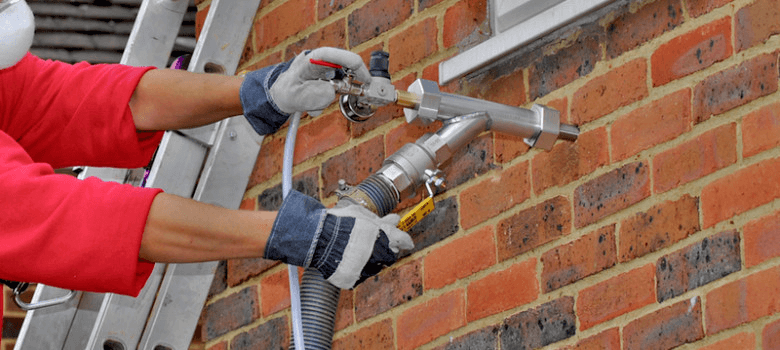
You can have a look at our 5-minute video showing how the walls are insulated.
Cavity walls can be insulated by blowing the insulation material into the cavity, normally from the outside (it can also be done from the inside if needed and agreed to).
Holes (about 22mm, which is smaller than a 2p coin) are drilled in the outside walls in a set pattern. This pattern is specified in the British Board of Agrément (BBA) certificate for the material being used.
The insulation, together with an adhesive, is then blown through the holes using special equipment. The adhesive “goes off” after about 20 minutes, thus holding the polystyrene beads together in a loose block.
The holes are then sealed with cement, which has been coloured to best match the colour of the existing mortar or render.
Filling cavity walls is not a “do-it-yourself” job. A 3-bed semi-detached house will take between 2 and 3 hours to complete.
Our trusted Installers are amongst the best in the business, insulating cavity walls for the past 50 years. They will fill the holes with closely matching cement. You will have a first-class finish with minimal fuss and disruption.
Most of our customers are amazed at how quickly and neatly the job can be carried out. Our work is guaranteed for 25 years by CIGA. CIGA are the Government-approved Cavity Insulation Guarantee Authority, which gives you complete peace of mind.
Telephone: 0800 8 10 10 60 or 07960 799681 and speak to an expert ECO adviser
Or complete our enquiry form
Can all houses have cavity wall insulation?
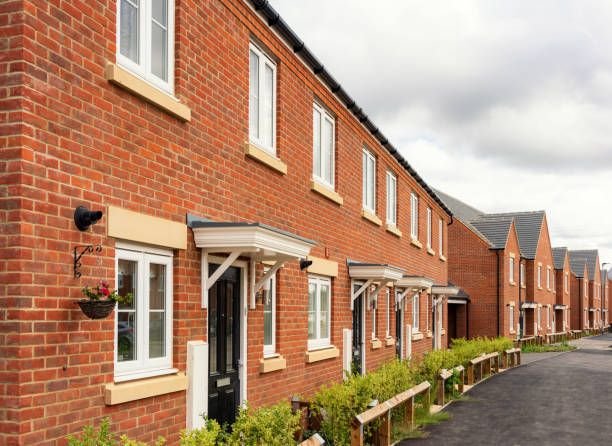
Not all houses with cavity walls are suitable for free cavity wall insulation in Newport. Here’s a breakdown:
Before 1920, most homes were built without cavity walls, using solid stone or brick.
Solid walls often led to damp issues, causing illnesses like pneumonia, which drove the adoption of cavity walls.
By the 1920s, homes started featuring two brick walls with a gap in between (the cavity), becoming standard practice by 1930. This design allowed for better moisture control and insulation.
Most homes built after 1930 with cavity walls are generally suitable for insulation, but it’s important to note that a survey is always required to confirm eligibility.
Major Exceptions:
Concrete Properties (often former council houses): These homes may have unfilled cavities, but insulating them can lead to problems like Concrete Cancer, making insulation unadvisable.
Timber-Framed Properties: These have a wooden frame attached to the inside of a brick external wall, typically filled with insulation. Since the frame already provides insulation, adding cavity wall insulation is unnecessary.
Homes Built After 1982: Properties constructed after this year should have been insulated during building, as it was mandated by building regulations. However, many homes built between 1980 and 2000 were left uninsulated and could still be eligible for insulation, pending a survey.
In conclusion, the decision to install cavity wall insulation depends heavily on the type of property and a thorough inspection.
To find out if you qualify, or to book a free, no obligation survey, complete our enquiry form or give us a call on
0800 8 10 10 60 or 07960 799681 and speak to one of our cavity wall experts.
Or complete our Enquiry Form
I rent my home – what are the qualifying benefits?
You will need to receive a qualifying benefit.
Here is the list of Qualifying Benefits.
- Pension Credit
- Income-Based Job Seekers’ Allowance
- Universal Credit – No income threshold
- Income-Related Employment and Support Allowance
- Tax Credits (including Working and Child Tax Credits) – No income threshold
- Income Support
- Housing Benefit – NEW
- Child Benefit/Family Allowance. Income Thresholds apply – see table below.
These are gross (before stoppages) thresholds.
| Number of Children: | 1 | 2 | 3 | 4+ |
| One Adult Household: | £19,900 | £24,800 | £29,600 | £34,500 |
| Two Adult Household: | £27,500 | £32,300 | £37,200 | £42,000 |
To find out if you qualify, or to book a free, no obligation survey, complete our enquiry form or give us a call on
0800 8 10 10 60 or 07960 799681 and speak to one of our cavity wall experts
Or complete our Enquiry Form
Can cavity wall insulation reduce condensation/black mould?
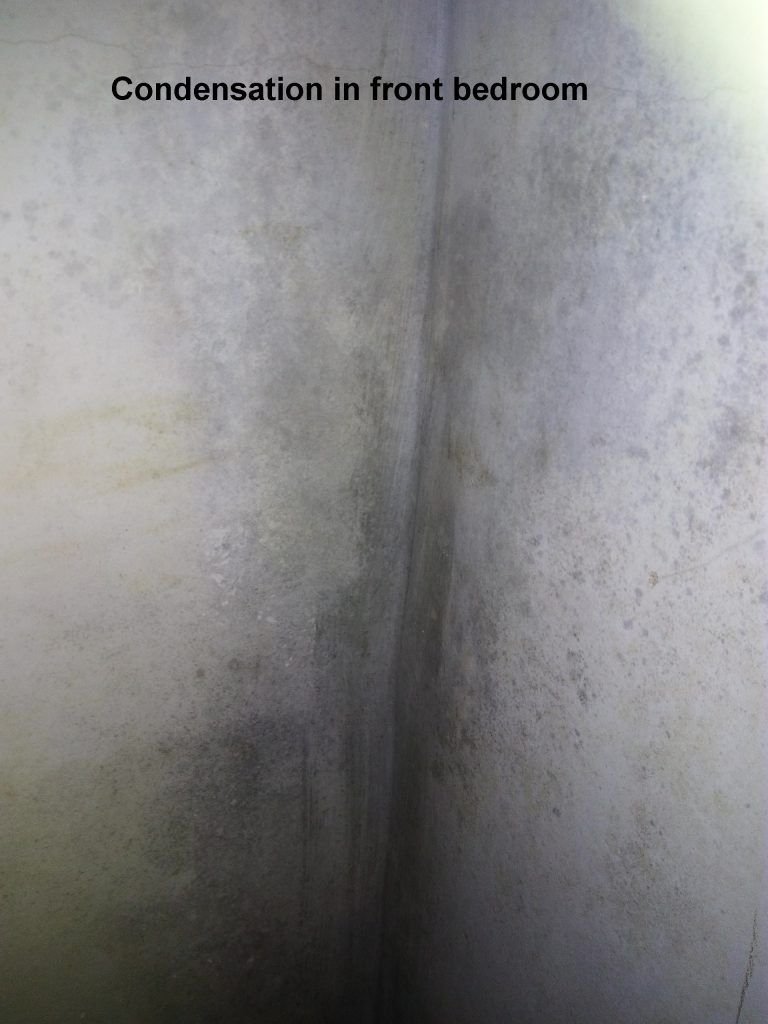
Yes, free cavity wall insulation can be an effective way to reduce condensation.
Condensation happens when warm, moist air meets a cold surface.
Warm air holds more moisture, but when it cools down on contact with a colder surface, some of that moisture is released, leading to condensation. If this moisture is not dried quickly, it can result in black mould growth.
By insulating cavity walls, the internal walls stay warmer, which greatly reduces the chance of condensation forming.
This helps minimise or even eliminate condensation, preventing the buildup of black mould and other damp-related issues.
To find out if you qualify, or to book a free no no-obligation survey, complete our enquiry form or give us a call
on 0800 8 10 10 60 or 07960 799681 and speak to one of our cavity wall experts
Or complete our Enquiry Form
Is my house suitable for free cavity wall insulation?
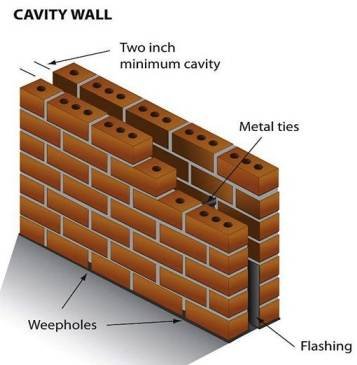
The simple answer is, “We can’t tell you without conducting a survey.” However, here’s what you need to know:
If your home was built after 1925, it likely has external walls made of two walls of brick with a gap (cavity) between them, held together by wall ties—this is known as a cavity wall.
Free cavity wall insulation fills this gap to help retain heat and reduce energy use. It can also help reduce or eliminate condensation, especially if your external walls are prone to moisture problems.
Your home is generally eligible for free cavity wall insulation in Newport if:
* The external walls have unfilled cavity walls
* The cavity is at least 50mm wide
* The masonry or brickwork is in good condition
However, it’s not always straightforward.
A Cavity Assessment Survey (CAS) is required, which is overseen and audited by the Installation Assurance Authority (IAA).
During the survey, we’ll check the suitability of your walls by inspecting them closely.
This includes drilling small test holes, using a borescope to inspect the cavity, and taking photos and measurements of the wall depth.
The walls will also be examined for cracks, unfilled holes, or any other issues that need to be addressed before insulation is installed.
Gutters and downpipes will be inspected to ensure proper drainage and that no leaks or blockages are present.
This comprehensive survey is free and takes about two hours. The results, including the photos, will be uploaded to the IAA platform for auditing.
This process is part of the greatly improved quality control measures within the new free Cavity Wall Insulation Grant scheme.
To find out if you qualify, or to book a free no no-obligation survey, complete our enquiry form or give us a call on
0800 8 10 10 60 or 07960 799681 and speak to one of our cavity wall experts
What if I don’t have an EPC?
If you don’t have an EPC (Energy Performance Certificate), you can still apply for a Cavity Wall Insulation grant using The Great British Insulation Scheme.
As a part of the required survey, we produce an EPR (Energy Performance Report). An EPR uses the same dataset as an EPC, but it is not registered, and you don’t get a certificate.
So, you don’t need to have an EPC!
To find out if you qualify, or to book a free, no-obligation survey, complete our enquiry form or give us a call
Complete Enquiry Form
or call us on 0800 8 10 10 60 or 07960 799681 and speak to one of our cavity wall experts.
What is an EPC?
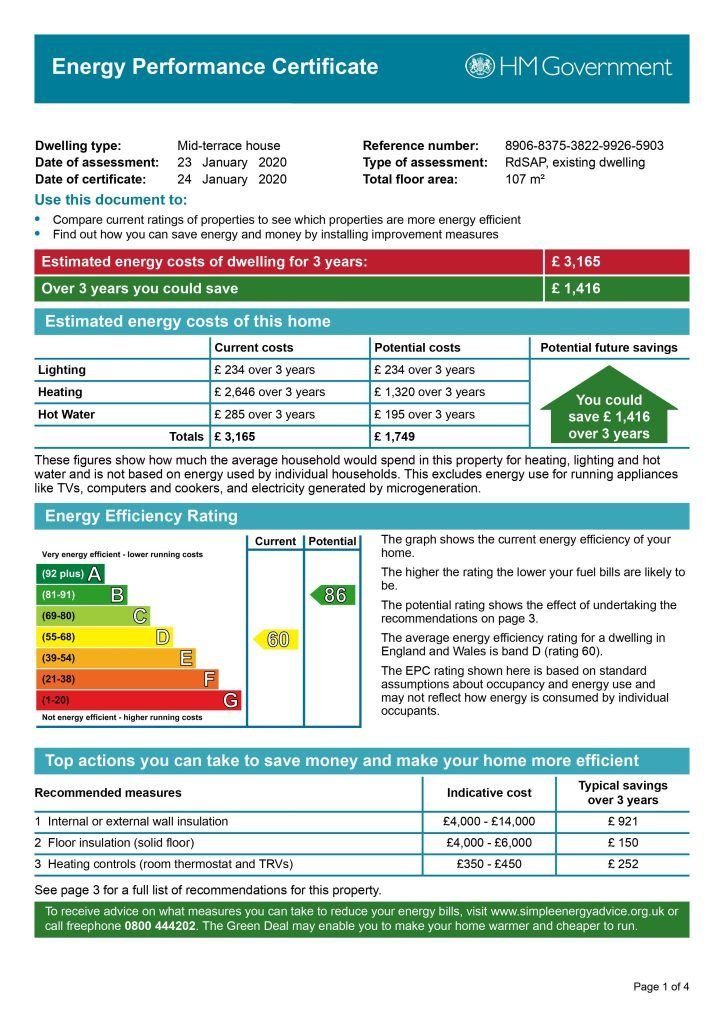
EPC stands for Energy Performance Certificate.
An EPC is required whenever a property is sold or rented.
They were introduced on August 1st, 2007. If you purchased your property before that date, it’s likely you won’t have one.
EPCs are valid for 10 years. So, you could sell a property with an EPC that’s 7 years old; however, it may not accurately reflect the property’s current energy efficiency. There is ongoing discussion about reducing their validity to 5 years.
An EPC rating indicates the estimated cost of heating the home and providing hot water, based on average usage for 2.5 occupants. Ratings range from A (most efficient) to G (least efficient).
As of June 2025, significant changes were made to how EPCs are calculated, using more detailed input data to improve accuracy.
If you don’t currently have an EPC, you can still apply for a Cavity Wall Insulation grant. During this process, we’ll generate an EPR (Energy Performance Rating), which functions like an EPC but isn’t officially lodged.
To find out if you qualify, or to book a free, no-obligation survey,
or call us on 0800 8 10 10 60 or 07960 799681 and speak to one of our cavity wall experts.
What are the benefits of having the walls of my home insulated in Newport?

Cavity wall insulation provides a range of valuable benefits for homeowners, including:
Improved Energy Efficiency: It significantly reduces heat loss, helping your home stay warmer for longer with less reliance on heating—cutting energy use and costs.
Lower Energy Bills: By using less energy to heat your home, insulation delivers long-term savings on heating costs.
Enhanced Comfort: It helps eliminate drafts and cold spots, creating a more stable and comfortable indoor temperature throughout the year.
Reduced Environmental Impact: Better energy efficiency means your home produces fewer carbon emissions, helping to lower your environmental footprint.
Condensation Prevention: By keeping internal walls warmer, cavity wall insulation helps reduce condensation, which in turn lowers the risk of damp and mold.
Increased Property Value: Energy-efficient upgrades can make your home more attractive to buyers and potentially increase its market value.
Noise Reduction: The insulation also acts as a sound barrier, helping to reduce external noise, especially beneficial for homes in busy or noisy areas.
Quick and Easy Installation: The process is fast and causes minimal disruption, typically taking around three hours for a semi-detached property.
To find out if you qualify, or to book a free, no-obligation survey, complete our enquiry form or give us a call
Complete Enquiry Form
or call us on 0800 8 10 10 60 or 07960 799681 and speak to one of our cavity wall experts.
Can Cavity wall insulation in Newport cause damp?
Can cavity wall insulation cause damp?
Damp issues are very rare. According to the Cavity Insulation Guarantee Agency (CIGA), problems occur in only 3 out of every 1,000 insulated homes. Most past issues were due to poor installation or homes being insulated when they shouldn’t have been.
What caused past issues with cavity wall insulation?
The main causes were:
Use of unsuitable insulation materials like Rockwool
Early versions of soft, white polystyrene beads
Lack of proper property surveys before installation
Today, stricter quality controls prevent these problems.
What insulation materials are used today?
We now use grey polystyrene beads that vary in size and are treated with a water repellent. This modern material performs far better in preventing moisture. You can watch a 5-minute video explaining the difference.
How is quality control managed now?
Since April 2017, insulation has been governed by the Cavity Assessment Surveillance Scheme (CASS), launched by the British Board of Agrément (BBA). In October 2018, management of the scheme was passed to CIGA.
CASS includes:
Internal cavity inspections via camera
Structural and environmental assessments
Desktop and on-site auditing by certified surveyors
Will my home be checked before insulation is installed?
Yes. Every property goes through a detailed pre-installation survey under the CASS scheme. If it’s not suitable, insulation will not go ahead.
Have the risks of damp been reduced?
Yes. Thanks to strict quality controls, improved materials, and mandatory surveys, the risk of damp from cavity wall insulation has been greatly reduced.
To find out if you qualify, or to book a free, no-obligation survey, complete our enquiry form or give us a call
Complete Enquiry Form
or call us on 0800 8 10 10 60 or 07960 799681 and speak to one of our cavity wall experts.
Does the cavity wall insulation come with a guarantee in Newport?
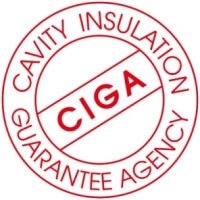
Yes, it comes with a 25-year independent guarantee, issued by the Cavity Insulation Guarantee Agency (CIGA).
To receive this guarantee:
Your property must pass a Cavity Assessment Survey (CAS), which is managed by the IAA
A CIGA guarantee is required for grant approval
CIGA was established in consultation with the UK Government to give homeowners a dependable guarantee for cavity wall insulation. If issues do arise (rarely), CIGA ensures they are resolved quickly and professionally.
CIGA also runs the Cavity Wall Insulation Self Certification (CWISC) scheme with the British Board of Agrément, ensuring all work by registered contractors meets current Building Regulations.
To find out if you qualify, or to book a free, no-obligation survey, complete our enquiry form or give us a call
Complete Enquiry Form
or call us on 0800 8 10 10 60 or 07960 799681 and speak to one of our cavity wall experts.
Should I have Cavity Wall Insulation if I have damp in my home?
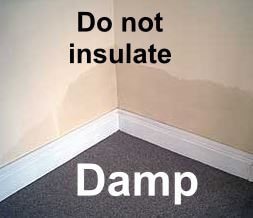
It’s important to address any damp issues before installing insulation.
If your property has damp, it will fail the Cavity Assessment Survey (CAS), and cavity wall insulation cannot be installed under the Great British Insulation Scheme (GBIS).
This is because to qualify for a grant, the property must pass the CAS, which comes with a 25-year guarantee. If damp is present, the survey will fail, and no grant will be approved.
However, if you have black mould or spots, it’s more likely to be caused by condensation rather than structural damp.
In most cases (about 90%), condensation results from factors like poor ventilation or drying clothes indoors, not the building itself.
Cavity wall insulation can help reduce black mould caused by condensation by keeping internal walls warmer, which can prevent or eliminate the issue.
To find out if you qualify, or to book a free, no-obligation survey, complete our enquiry form or give us a call
Complete Enquiry Form
or call us on 0800 8 10 10 60 or 07960 799681 and speak to one of our cavity wall experts.
Do I qualify for a grant?

There are 2 main pathways to qualify for a cavity wall insulation grant in Swansea:
1. The General Group
To qualify under this group, you must meet two key criteria:
Council Tax Band: In Wales, your property must be in bands A, B, C, D, or E. In England, it must fall under bands A to D.
You can check your council tax band on the Gov.UK website. ✔
Energy Performance Certificate (EPC) Rating: Your property must have an EPC rating of D, E, F, or G, which can be verified on the EPC Register. ✔
2 ticks and you qualify!
These conditions apply to homeowners and private renters (with the landlord’s consent). However, private tenants must also receive a qualifying benefit to be eligible for free cavity wall insulation, and the EPC rating of the property must be a D or E.
F or G rated rented properties, a legal exemption is required to qualify.
2. The “Low Income” Group
To qualify through this group, you need to be receiving one of the following benefits, and your EPC rating must be D, E, F, or G:
Pension Credit
Income-Based Job Seekers Allowance
Universal Credit (no income threshold)
Income-Related Employment and Support Allowance
Tax Credits (Working and Child Tax Credits – no income threshold)
Income Support
Housing Benefit (newly added)
Child Benefit/Family Allowance (with income thresholds based on the number of children in the household)
Child Benefit Qualification Matrix: Your gross household income must be below the following thresholds:
| Number of Children | 1 | 2 | 3 | 4 |
| 1 Adult household | £19,900 | £24,800 | £29,600 | £34,500 |
| 2 Adult household | £27,500 | £32,300 | £37,200 | £42,000 |
To find out if you qualify, or to book a free, no-obligation survey, complete our enquiry form or give us a call
Complete Enquiry Form
or call us on 0800 8 10 10 60 or 07960 799681 and speak to one of our cavity wall experts.
Will cavity wall insulation save me money?

Free cavity wall insulation in Newport can lower your fuel bills, reduce your carbon footprint, and help minimise or eliminate condensation.
Here’s how heat loss typically breaks down in a house:
Walls: 35%
Roof: 25%
Floor: 15%
Draughts: 15%
Windows: 10%
Uninsulated walls account for 35% of a home’s heat loss.
By installing free cavity wall insulation, you can reduce this heat loss by 70%. As a result, your heating costs could drop by 24.5%(since 70% of 35% equals 24.5%).
Be cautious of companies that overstate this figure. Some may claim your bills will decrease by 35%, but no insulation can completely prevent heat loss through walls.
To find out if you qualify, or to book a free, no-obligation survey, complete our enquiry form or give us a call
Complete Enquiry Form
or call us on 0800 8 10 10 60 or 07960 799681 and speak to one of our cavity wall experts.
How do I apply for a cavity wall insulation grant?
We take care of everything for you, so you don’t have to worry about any paperwork.
During the survey, we manage the entire grant application process and verify your eligibility.
Once the work is finished, we request the grant funds, which are paid directly to us.
All you need to do is relax and enjoy your reduced energy bills and a smaller carbon footprint!
To find out if you qualify, or to book a free, no-obligation survey, complete our enquiry form or give us a call
Complete Enquiry Form
or call us on 0800 8 10 10 60 or 07960 799681 and speak to one of our cavity wall experts.
How do I apply for a FREE NO-OBLIGATION SURVEY?
To find out if you qualify, or to book a free, no-obligation survey, complete our enquiry form or give us a call
Complete Enquiry Form
or call us on 0800 8 10 10 60 or 07960 799681 and speak to one of our cavity wall experts.
Ready to Take the Next Step?
Don’t miss out on this limited opportunity (ending in March 2026) to insulate your home for free!
Join thousands of homeowners already saving on energy bills with cavity wall insulation — installed by professionals and funded by the Great British Insulation Scheme.
👉 Call now on 07960 799681 or 08008 101060 and speak to an expert ECO adviser or complete our enquiry form and start saving today!
